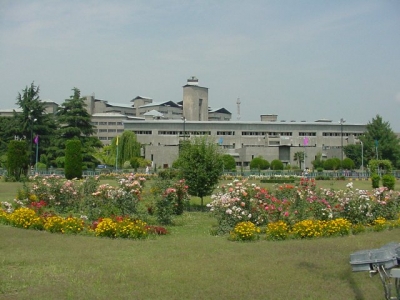
Sameer Yasir
The Chinese strategist of war, Sun Tze, had a brilliant approach based on the principle of superior intelligence, deception, and knowledge of the mind of one’s enemy. Contemporary military doctrines also give great importance to the application of intelligence. Information is the key commodity in the battlefield, so useful that it can even lift the fog of war. In a place like Kashmir they don’t use cameras and drones to do the job. There are enough humans on the streets doing the dirty job for them.
Even in the post violent militancy period in the valley the struggle to gather the unknown is cost effective because there is no need to use the contemporary tools of intelligence gathering. It can be a political rally of any leader, mainstream or separatist, making rhetorical speeches they note it, video record it and report every bit of what happened. It is not something new, but in valley surveillance and spying is an old phenomenon, something which has made Kashmiris regardless of political affiliations and ideologies paranoid. And there is a reason for being so.
On Friday, Syed Ali Shah Geelani was addressing a small crowd in Sopore town when people nabbed a man carrying a pistol and a video recorder. Naik Kamlesh Kumar Mishra, a military intelligence man was speaking on phone with some officer when the people nabbed him. Later, the man was taken into police custody and what followed no one knows. But the police claimed that the gunman belonged to Army’s Military Intelligence (MI) and was there to record and report Geelani’s speech.
It is this kind of surveillance which has made people suspicious of everything surrounding them. The fear that surveillance can actually become so extensive as to threaten an individual’s healthy moral development is reasonable, for the growth of surveillance is not confined to small, minor or contained areas of our lives, it seems to be irresistibly spreading everywhere, percolating into the nook and crannies of everyday existence, which is where much of a person’s moral education occurs.
Also, throughout the history of conflict in the valley the brutal policing and the response to social disorder has been to adopt the most modern equipment and techniques available. Over the past twenty years in particular, considerable advances in technology have dramatically increased the powers of the state to carry out surveillance upon the inhabitants of valley. This inevitably brings with it the dystopic vision of an Orwellian society, where citizens are constantly under the vigilant gaze and attentive ear of ‘Big Brother’.
Surveillance undoubtedly curtails rights through, for example, reinforcing divisions within society, or it can be a vital tool in preventing and detecting crime. For citizens to accept and consent to certain forms of surveillance, that is to say its positive face, the state should be accountable for its actions. It cannot be left with an unfettered discretion to determine why and where it carries out surveillance on, and on behalf of its citizens, without some form of legal responsibility.
And this Deep surveillance surrounding everyone in the valley plays a very important role in framing the public opinion on surrounding issues. People start suspecting their own close associates and become predictably paranoid.















